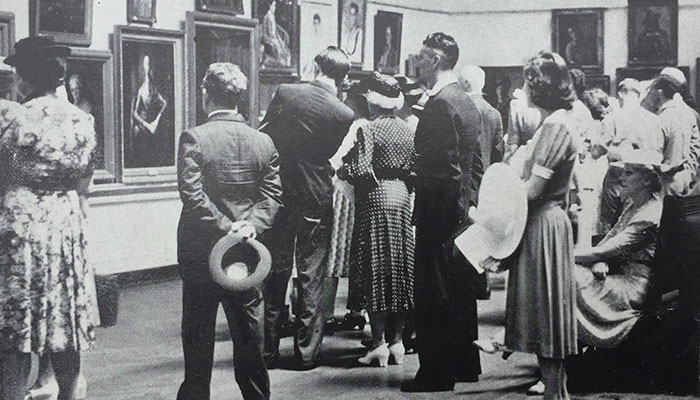Though HSC Latin students usually number less than 200 each year, interest in the ancient tongue isn’t waning among adults as rising numbers tackle it for pleasure.
Macquarie Latin and Greek scholar Associate Professor Trevor Evans, says that there’s much to be learned from the ancient texts and languages that form the basis of Western culture.
 Just for fun: people line up every year to learn Latin, Ancient Greek, Hieroglyphic Egyptian and Ancient Hebrew.
Just for fun: people line up every year to learn Latin, Ancient Greek, Hieroglyphic Egyptian and Ancient Hebrew.
“Ancient languages give us access to very rich and extraordinarily influential cultures and stories that have had enormous influence on subsequent Western history and literature,” says Associate Professor Evans, who heads the Macquarie School of Ancient Languages and is Director of Macquarie University’s Ancient Languages Program.
He says that Latin is an example of an ancient language that offers its students many practical advantages.
“Because of the significance of the Latin language in the British Isles during the medieval and early modern period, a very large component of English vocabulary comes from a Latin background,” he says.
“Learning a language like Latin helps you with your control over a language like English, and an understanding of grammar and of how languages work.”
Australia’s school system has not systematically taught grammar for several generations, he says.
“These days a child at school is being taught by someone who is two or three generations away from that kind of knowledge by the time they reach university level and often doesn't even have a basic level of control over the parts of speech,” he says.
“The discipline of learning a language with a complex grammatical system like Latin can help you organise your thoughts and can help with general written expression.”
Adult learners
Each year, more than 100 people from all walks of life turn up at the Macquarie Ancient Languages school to study week-long intensive courses in such arcane tongues as Latin, Ancient Greek, Hieroglyphic Egyptian, Coptic Egyptian, Ancient Hebrew and Akkadian – the language of ancient Mesopotamia.
Evans – who learned Latin and Greek as an adult himself – says it doesn't matter how old or young you are when learning these languages.
“People are interested in the ancient world and the languages offer perhaps the best way available to connect with it. They provide the most direct point of connection with our deep human past,” he says.
He adds that enrolments can increase after big studio films about ancient civilisations - such asGladiator, Troy or Spartacus.
Far from being irrelevant, students of these ancient languages find that a good deal of what they learn is useful for understanding not just the use of English, but also much of the terminology of science.
“Latin isn't actually dead,” he adds. “It had a history as a spoken language over hundreds of years, and this part of its history continues as a written language, it’s still a language in use in scholarship, it’s used in Vatican City and well into the 20th century it was still the language of scientific communication, and so is extensively used in scientific literature.”
Versions of Latin are spoken today, in the form of languages like Italian and Spanish; just as modern Greek is a descendant of ancient Greek, he adds.
“Losing a language is a tragedy – and it’s something we have seen with many Australian indigenous languages, where there is just no way of recovering them,” he says.
“Latin is not in that situation at all.”



